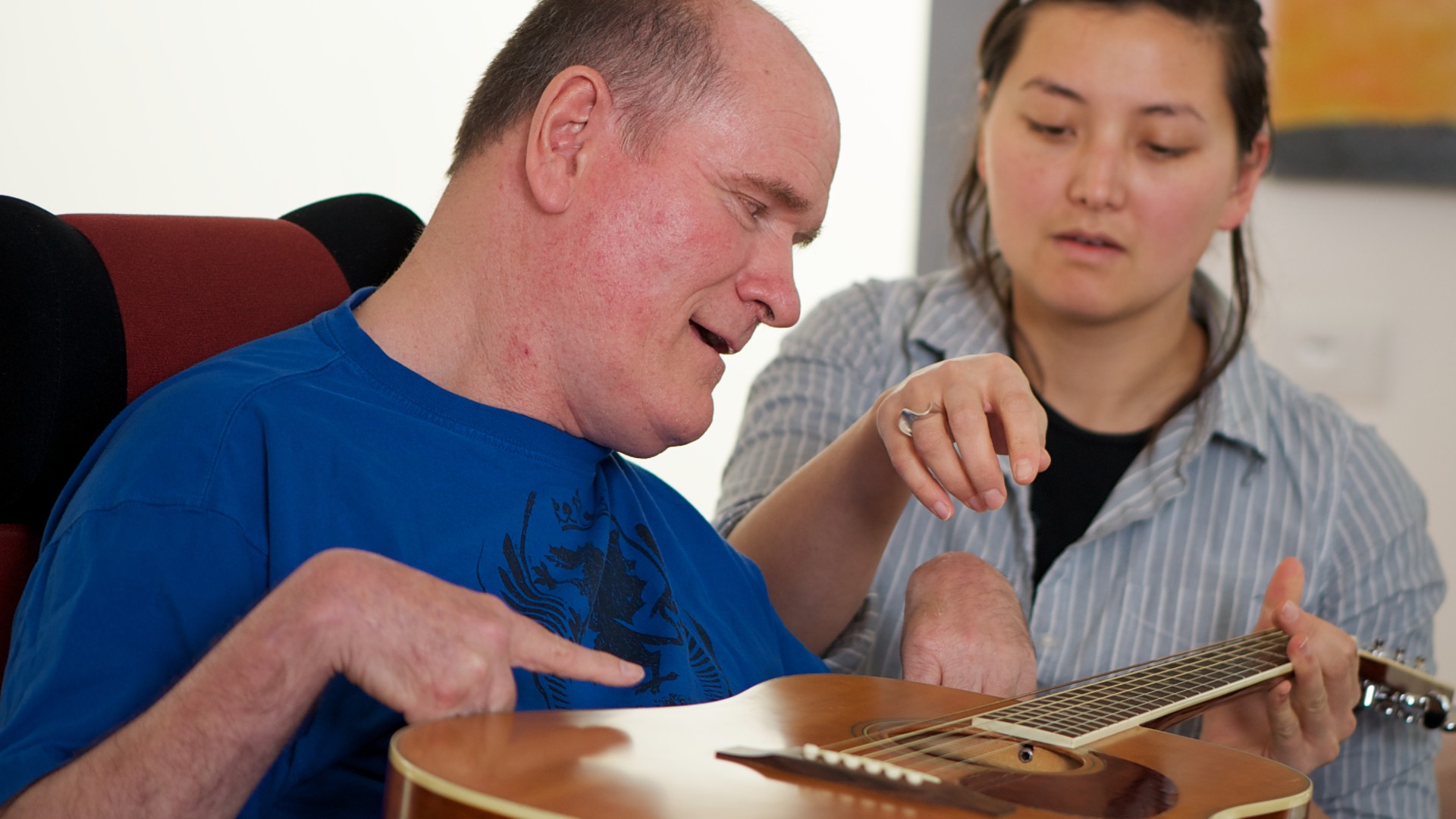Music Therapists
Board Certified Music Therapist (MT-BC), LCAT (Licensed Creative Arts Therapist), Music Therapist, Neurologic Music Therapist
What they do:
Plan, organize, direct, or assess clinical and evidenced-based music therapy interventions to positively influence individuals' physical, psychological, cognitive, or behavioral status.
On the job, you would:
- Design or provide music therapy experiences to address client needs, such as using music for self-care, adjusting to life changes, improving cognitive functioning, raising self-esteem, communicating, or controlling impulses.
- Design music therapy experiences, using various musical elements to meet client's goals or objectives.
- Sing or play musical instruments, such as keyboard, guitar, or percussion instruments.
Knowledge
Health
- therapy and counseling
Math and Science
- psychology
- sociology and anthropology
Arts and Humanities
- music, dance, visual arts, drama, or sculpture
- English language
Business
- customer service
Skills
Basic Skills
- listening to others, not interrupting, and asking good questions
- reading work related information
Social
- understanding people's reactions
- looking for ways to help people
People and Technology Systems
- thinking about the pros and cons of different options and picking the best one
- figuring out how a system should work and how changes in the future will affect it
Abilities
Verbal
- communicate by speaking
- listen and understand what people say
Ideas and Logic
- notice when problems happen
- make general rules or come up with answers from lots of detailed information
Attention
- pay attention to something without being distracted
Hearing and Speech
- recognize spoken words
Personality
People interested in this work like activities that include helping people, teaching, and talking.
They do well at jobs that need:
- Concern for Others
- Self Control
- Integrity
- Adaptability/Flexibility
- Dependability
- Cooperation
Technology
You might use software like this on the job:
Office suite software
- Microsoft Office software
Music or sound editing software
- Avid Technology Pro Tools
- Virtual instrument software
Medical software
- Electronic health record EHR software
Education
Education: (rated 4 of 5)
bachelor's degree or
master's degree
usually needed
master's degree
usually needed
Job Outlook
Bright
New job opportunities are very likely in the future.
Explore More
- Art Therapists
- Marriage & Family Therapists
- Occupational Therapists
- Recreational Therapists
- Speech-Language Pathologists
You might like a career in one of these industries:
See more details at O*NET OnLine about music therapists.





